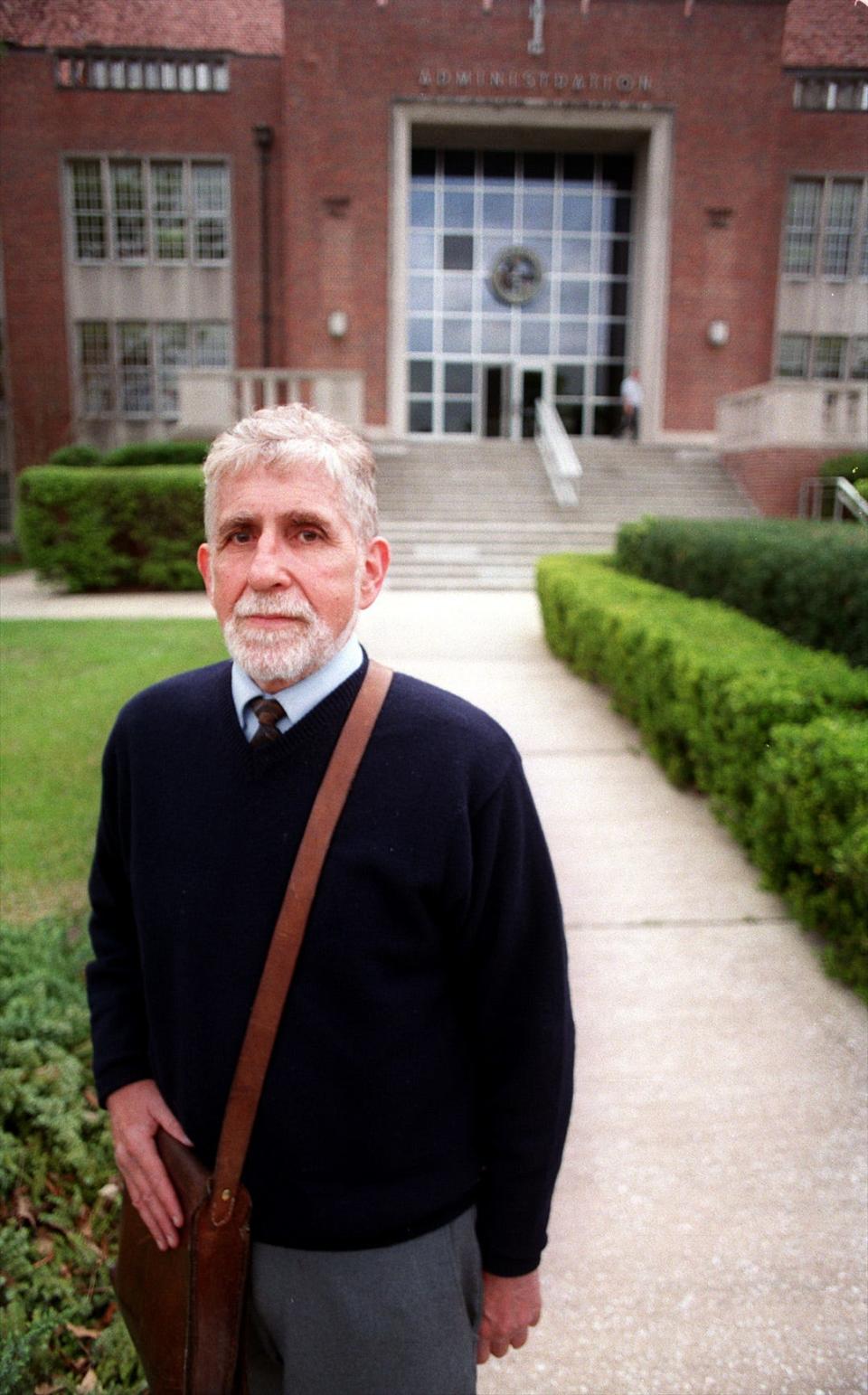Gabriel Hillel: Address consequences of slavery, racism in Gainesville
If I am elected mayor of a new Gainesville, I will seek reparations for the African-American community whose ancestry can be traced directly to slaves who served the city, county and the University of Florida in the 1850s. At the UF spring undergraduate commencement, speakers stood before a giant acknowledgement that its history dates to 1853.
Reparation proceeds would be used to recognize the contributions African-Americans have made here under extreme duress, not only in the years of slavery but during the 80 or more years of open Jim Crow practices in the last century after a poll tax, separate ballot boxes for Blacks and whites, and racially separate polling places were enacted.
In "The History of Gainesville, FL, 1854-1979,” Charles H. Hildreth and Merlin G. Cox report the Ku Klux Klan to have been openly active until World War II.
We would not be alone in such an education effort. In 2016, Georgetown University opened to a discussion few whites want to have about a responsibility we have to the ancestors of slaves. We white people today have to recognize how we have benefitted from those years of slavery and post-Reconstruction suppression.

Reuters reported that Harvard University announced it is setting aside $100 million for an endowment fund and other measures to close the educational, social and economic gaps that are legacies of slavery and racism. An email from Harvard President Lawrence Bacow included a link to a 100-page report about Harvard and the legacy of slavery
Alachua County before the Civil War profited from the presence of 795 slaves. Archives of the clerk of the court of Alachua County identifies each one and details their purchases, sales and ownership before the Civil War. UF honors at least two of those white families to this day. Now it's time this community recognized those who slaved under them.
Alachua County traditionally has been uncomfortable about its connections to the racist past, especially in and since the Jim Crow era when UF was opened in a city heavily influenced by the Daughters of the Confederacy and the Ku Klux Klan.
Alachua County emerged from the 1960s by preferring George Wallace in the 1972 Democratic Party presidential primary. Wallace was the best-known racial segregationist of his time. In the general election, Alachua County selected Richard Nixon over the far more liberal George McGovern. Wallace dropped out after he was crippled by an assassination attempt.
In 1968, Gainesville made national headlines because of fire bombings and the imprisonment without bail of civil rights workers. In 1970, Black students boycotted Gainesville High School until they were judicially threatened with criminal contempt by a judge. In 1971, the New York Times for three days covered Black student protests, expulsions and white support in Gainesville in opposition to UF President Stephen J. O’Connell, former Florida Supreme Court justice.
In 1968, when the state Constitution was amended, for the first time significantly since 1885, not a single Black person participated in the framing of that document. But the vestiges of slavery hardly ended then. In 177 years, not a single Black male has been elected to the circuit court in Eighth Judicial Circuit.
The state Legislature years ago recognized the need for reparations, by compensating survivors of the Rosewood 1923 massacre by whites from the nearby Cedar Key community. Let’s revive that worthy effort, and create a fund to educate Black and white children about what kept Gainesville on the wrong path for so long.
As a civil rights soldier since 1964, I can lead Gainesville out of the darkness of its Jim Crow past.
Gabriel Hillel is running for mayor of Gainesville. Opinion columns written by the candidates in this race and others running in the upcoming election can be found online at bit.ly/august22electioncolumns.
Join the conversation
Share your opinions by sending a letter to the editor (up to 200 words) to letters@gainesville.com. Letters must include the writer's full name and city of residence. Additional guidelines for submitting letters and longer guest columns can be found at bit.ly/sunopinionguidelines.
Journalism matters. Your support matters.
Get a digital subscription to the Gainesville Sun. Includes must-see content on Gainesville.com and Gatorsports.com, breaking news and updates on all your devices, and access to the eEdition. Visit www.gainesville.com/subscribenow to sign up.
This article originally appeared on The Gainesville Sun: Column from candidate for Gainesville mayor Gabriel Hillel

